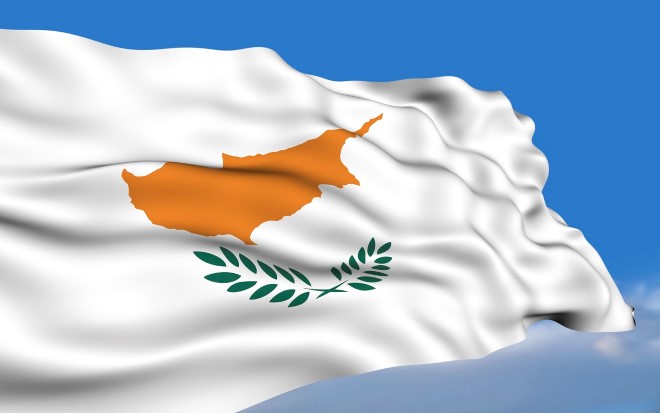By William Mallinson*
Introduction
With Britain, one of Cyprus’ so-called guarantor powers, leaving the EU, the neurotic speed and desperation to try to force yet another legally questionable ‘solution’ on Cyprus while the UK is still a member, is currently causing much scurrying around. Speed is the name of the game. Most alleged think tank experts on the Cyprus problem are however eminently inexpert at best, or propagandists at worst.
Let us look at how the grand-sounding European Policy Centre (EPC) is ‘handling’ the problem. One of its people, described as a ‘Senior Policy Analyst’ has just produced a clearly shallow article on the latest talks in Crans Montana. I would have failed it as a first year IR paper. It comes out with such gems as ‘a solution would be a win-win for both communities as well as the broader region’; ‘Crans-Montana needs to be results-oriented’; and ‘the international community’, namely the US and the EU, has an important role to play’. No mention of Russia, China and India, or any of the other one hundred and sixty four countries of our planet. Worst of all is the ending: ‘Yet, if the two leaders fail to reach an agreement or at least make significant progress; another conference in the foreseeable future is unlikely, if ever. The window of opportunity is going to close, all sides will blame each other and serious questions will be asked over what should happen next. For example, what rational grounds would there be to argue that the Cyprus problem can be solved in the future almost certainly under less favourable conditions? Cyprus risks entering alien territory with unknown consequences for the island and the wider region.’ The title of the piece says it all; Crans-Montana – A ‘now or never’ moment for a Cyprus settlement. The whole article reads like a threat.
Repetition
We have seen these threats and ‘last-chance’ arguments since at least 1956 (thank you to Klearchos Kyriakides for ascertaining this), when the British government tried to foist partial autonomy onto the Cypriots, as a way of maintaining sovereignty. Ever since then, virtually every attempt at a solution has been accompanied by ‘last chance’ threats, the most blatant being made during the Annan Plan negotiations, culminating in a massive rejection in referenda in 2004. It is precisely the same now, as yet again, Britain, certainly at American instigation, wishes to keep its bases, but somehow divest itself of any responsibility for its past crimes in encouraging Turkey to involve itself in Cypriot affairs.
The First Letter
Concerned about the lack of serious analysis in the above EPC piece, we e-mailed the following to the EPC:
Dear Sirs/Madam
Please find attached the views expressed by Professors Mallinson and Papadopoulos and me on Amanda Paul’s article that appeared on your site (http://www.epc.eu/pub_details.php?cat_id=4&pub_id=7808) on 26 June 2017 under the title “Crans-Montana – A ‘now or never’ moment for a Cyprus settlement?”
We were happy to read in your Mission Statement that transparency and the promotion of a balanced dialogue are among the principles and values underpinning the EPC’s activities. As such we are encouraged to think that EPC will give our article due publicity by posting it on your site so that the public can have an opportunity to read views not necessarily agreeing with those expressed by Ms Amanda Paul. Considering that the Crans-Montana talks will be coming to end some time next week we would very much appreciate seeing our article posted on your site by Tuesday (04.07.2017) and while the topic is still headline news in many countries.
Thanking you in anticipation. Look forward to your response
Sincerely
Dr. Aris Petasis
Scholar and Editor of “Intractable Dilemmas inthe Energy-Rich Eastern Mediterranean”
Published by Cambridge Scholars, UK, 2016
UNTHINKING TANKS
Dear Herman von Rompuy, Fabian Zuleeg, Janis Emmanouilidis and Rebecca Castermans,
We think that Amanda Paul’s article of 27 June about Cyprus does a disservice to your claim to be an independent think tank. The following explains why.
As so often with those interests that promote the abortive and defunct Annan Plan that was democratically crushed in 2004, designed to emphasise the questionable treaties that established the semi-independent Republic of Cyprus in 1960, the article’s very heading threatens Cypriots with a ‘now or never’ bromide. We have seen all this before. It uses jejune International Relations (IR) jargon such as ‘win-win’, and ‘window of opportunity’, but that can be forgiven. What cannot be forgiven is the almost complete lack of knowledge of the background, as well as the implied threat at the end, which is highly irresponsible.
First, she implies that agreement between the two communities is vital. Of course it is, but she should realise that only a ‘solution’ that ignores Russia and reverts to the very shaky treaties themselves will be acceptable to Turkey, the US and Britain. It is those treaties that led to the breakdown of 1963/4 in the first place. Is the author aware of the following?
The treaties of 1960 that allegedly established an allegedly independent Republic of Cyprus were never intended to allow a central government of Cyprus to behave independently. This because these treaties were predicated on keeping the Soviet Union out of the Eastern Mediterranean as much as possible. The whole arrangement was therefore based on the British bases. The fact that Cyprus became a member of the United Nations was based on the treaty of Establishment. The trouble is that the whole package of treaties (also of ‘Alliance’ between Greece, Turkey and Cyprus, and of ‘Guarantee’) reflected illegality, essentially because of the Treaty of Guarantee. Why? Because the Treaty of Guarantee was in contravention of the United Nations Charter. Even the Foreign Office Law Officers recognised in 1967 that the treaty contravened Article 2.4 of the United Nations Charter, and was completely overridden by Article 103.[1]
And since the three treaties were interdependent, they were all tainted. As regards the Treaty of Establishment, perhaps rather farcically, over half of it was devoted to the British bases. It is significant that before the London conference, Makarios (leader of the Greek Cypriot Community and later first elected president of The Republic of Cyprus) was not even allowed to participate at the Zurich conference. As for the inevitable breakdown of 1963, the Foreign Office actually helped Makarios to draft his thirteen amendments to the [unworkable and externally imposed) constitution:
We have been through the 1963 papers, which tend to confirm that the Thirteen points were indeed framed with British help and encouragement; that the then High Commissioner considered them to be reasonable prospects; and that our intention was to promote their acceptance by the Turks.[2]
In 1964, the British admitted that the constitution was unworkable:
There is no hope of re-establishing the Constitution which was destroyed at Christmas. A radical change is inescapable.[3]
Then, obviously realising that the 1960 ‘arrangement’ had proven inadequate:
The only two solutions which would bring peace and order to Cyprus are enosis (union with Greece) or the establishment of a unitary Republic dominated by its Greek-Cypriot majority.[4]
In 1975, the Foreign and Commonwealth Office (FCO) referred to an ‘unstable constitutional agreement’.[5]
It is clear that the whole 1960 arrangement was a rushed job, imposed on the people of Cyprus, and that the illegal aspects were simply ignored, but admitted later on.
The USSR was reasonably happy to vote for Cyprus’s membership of the UN on 23 August 1960 (SC resolution 155), since it knew that there would be problems for NATO’s Southern flank.
In 1975, the FCO wrote:
British strategic interests in Cyprus are now minimal. Cyprus has never figured in NATO strategy and our bases there have no direct NATO role. The strategic value to us has declined sharply since our virtual withdrawal from east of Suez. This will remain the case when the Suez Canal has reopened.
Given our decision not to use military force in Cyprus and the relatively small amount of pressure that we can bring to bear on Cyprus, Greece and Turkey, this puts us in the invidious position of having responsibility without power. This has brought us no advantages whatsoever and it must be in British interests for us to work for a solution which will not involve Britain in any guarantee obligations or other lasting commitments over Cyprus. Such a solution is however remote and will be particularly difficult to achieve as long as we retain a physical presence in the Bases.[6]
More ominously, the FCO also wrote:
We should also recognise that in the final analysis Turkey must be regarded as more important to Western strategic interests than Greece and that, if risks must be run, they should be risks of further straining Greek rather than Turkish relations with the West.[7]
Another FCO quote, from 1975, shows how legally farcical the whole 1960 package is:
One implication of the current Turkish Cypriot constitutional moves, and specifically of Denktash’s confirmation to me that they regard the post of President and Vice-President as having lapsed, is the extent to which the whole 1960 Treaty apparatus be held to have lapsed […] we […] continue to regard the 1960 constitution as still in practice operative, despite the various derogations by both Greek and Turkish Cypriots since 1963. But the Turkish side is in effect saying increasingly openly and firmly that the 1960 constitution is defunct. They are, of course, freely having their cake and eating it by applying the view only when it suits them.[8]
More damningly, some days after the above was written, an FCO legal adviser wrote:
It is not, however, open to the Turkish Government to pick and choose between the various parts of the 1960 Treaty apparatus as it suits their purposes […] the Turks cannot rely on the collapse of the Constitution in order to justify intervention for the purpose of re-establishing the state of affairs established by the basic Articles of the Constitution and, having intervened with that aim, then ignore that aim because the Constitution has lapsed.[9]
A final FCO quote from before the Turkish invasion demonstrates the obvious relationship between the British bases (now NATO/American in all but name) and the legal shakiness of the ‘1960 apparatus’:
[…] The various 1960 agreements […] constituted an integral settlement, in effect a package deal. The abandonment of our position on the Treaty of Guarantee would thus undermine our position on the rest of the 1960 settlement. In particular, it might one day be found to have prejudiced our position on the Treaty of Establishment as well. c) Even though our title to the Sovereign Base Areas does not depend on the Treaty of Guarantee or the Treaty of Establishment, the express provisions in those Treaties concerning the Sovereign Base Areas may still be of value to us in ensuring our untroubled occupation and use of the Areas. Moreover, anything which called the 1960 settlement as a whole into question could expose us to pressure on our moral (as distinct from legal right to hang on to the Areas. d) Whether or not we have a direct interest in maintaining the Treaty of Guarantee, we could not openly abandon it without gravely upsetting Turkey.[10]
The same things return with different colours. It is clear that the Zurich agreements and the resulting ‘treaties’ were at best built on very shaky legal foundations, and at worst were actually illegal, as began to be recognised after 1963. Not to mention the ethics of the case!
Perhaps the following points, all of which are based on released government documents – some obtained following pressure on the FCO by the Information Commissioner and myself – will focus minds on the fundamental issues, and put the public relations mainstream media claptrap – with its tactical omissions and exaggeration – into its proper context.
First, in 1955, Britain decided to involve Turkey in Cyprus, illegally, since Article Sixteen of the Treaty of Lausanne forbade Turkey from involvement in former Ottoman possessions. Britain’s aim was to cause Greek-Turkish friction, so as to maintain her sovereignty.
It would only be a question of time until Turkey invaded.
Second, Britain colluded secretly with Turkey.
Third, when the US took over the Middle East from Britain, it pressurised Britain into negotiations, in order to keep at least the Cyprus British bases in a NATO-friendly solution.
Fourth, the whole ‘solution’ was predicated on keeping the Soviet Union out of the strategic game, rather than on the interests of the people of Cyprus.
Fifth, the whole package of treaties that set up the pseudo-independent republic was predicated on the British bases. The Foreign Office even recognised the illegality of the Treaty of Guarantee, in that it breached Article 2.4 of the United Nations Charter, and was overridden by virtue of Article 103 of the Charter.[11]
Sixth, as early as 1964, the Foreign Office was writing that in the long term, Britain’s sovereign rights would be considered increasingly irksome by the Greek Cypriots and would be regarded as increasingly anachronistic by world public opinion.
Seventh, by 1976, the FCO was writing that British policy should be one of complete withdrawal of a military presence from Cyprus, and that this would have to take into account the need to transfer sovereignty to the government of Cyprus.
Eighth, the US then offered to pay for the bases, and negotiations on this began.
Ninth, Kissinger had already written to the Foreign Minister, Callaghan, that Britain should retain its bases, citing the Soviet Union. The FCO also referred to Kissinger’s description of Cyprus as an important piece of the world chessboard, and important in the Arab/Israel dispute.
Tenth, by 1980, with a Thatcher government, in an about-turn, the FCO wrote that ‘the benefits which we derive from the SBAs are of major significance and virtually irreplaceable. They are an essential contribution to the Anglo-American relationship. The Department have regularly considered with those concerned which circumstances in Cyprus are most conducive to our retaining unfettered use of our SBA facilities. On balance, the conclusion is that an early ‘solution’ might not help (since pressures against the SBAs might then build up), just as breakdown and return to strife would not, and that our interests are best served by continuing movement towards a solution – without the early prospect of arrival.’[12]
Eleventh, Callaghan and his FCO minders did not tell the truth to a parliamentary committee, denying that they had foreknowledge of the initial Turkish invasion, and of the big breakout. The documents show that they knew. Why did Callaghan and his Foreign Office lie? Essentially, to avoid telling the public that Britain had succumbed to Kissinger and lost its independence in foreign and defence policy. And he needed to keep his image as clean as possible within his own Labour Party, for the internal elections as leader of that party and therefore Prime Minister. In fact, he was Prime Minister less than two months later, following Wilson’s resignation.[13]
Quick Conclusion
Britain has long recognised that as regards Cyprus, it has responsibility without power. But being part of US foreign policy makes this bearable. The US will not countenance a genuinely independent Cyprus, free of foreign troops, since this is what Russia would like. Any ‘solution’ will always be predicated on the partly illegal treaties of 1960 and on the British bases, whatever the semantic gyrations, as with the so-called ‘Annan Plan’, the main precepts of which were introduced by Kissinger in 1976, in his ‘Five Point Initiative’. The rest is public relations for the legally resident people of Cyprus (since its 1974 military invasion Turkey has poured into Cyprus more than 200,000 illegal settlers in an attempt to change the demographic balance of the country), who are little more than the collateral fodder of 19th Century power-politics. A putative solution contains so many derogations from EU law as to reduce Cyprus to the level of a third-class part-member of the EU, if indeed it could survive an Anglo-American ‘agreement’.
As the latest neurotic and frenetic round of negotiations about illegally occupied Cyprus continue, it worth going backwards, in order to see the real factors which will determine events. The speed of technology and manic globalisation have worked against the knowledge necessary for journalists, politicians, international relations academics, and even the negotiators themselves, to properly grasp the fundamentals. We live in a world of sound bites.
Perhaps Ms. Paul needs to do some serious work, and spend a few years in some serious archives, to attempt to ascertain at least a modicum of basic background to enable her to analyse and even evaluate the facts, rather than subtly – and accidentally we hope – promoting the interests of so-called ‘stakeholders’ and IR pseudo-theorists, and using a gaggle of sweet-sounding but meaningless slogans.
We look forward to your response.
William Mallinson
Aris Petasis
George K. Papadopoulos
The Reply
A Fabian Zuleeg replied:
Dear Aris Petasis
The EPC believes in a balanced debate, based on mutual respect, and acknowledges the right to disagree in a constructive manner. In your piece, this approach and mindset are not evident. For these reasons, we will not publish your piece.
Sincerely,
Fabian Zuleeg
My Response
Dear Fabian Zuleeg,
Clearly, it seems that serious research and unimpeachable evidence stand in direct contrast to your protestation that you believe in balanced debate. If you believe in balanced debate, then I regret that you are nevertheless unable to publish the truth, but only worn-out platitudes, devoid of analysis, let alone evaluation. I think that you ought to try and bite the bullet, and respond properly, in public.
Yours sincerely,
William Mallinson
Second Attempt
I received no reply to my e-mail. Our co-ordinator wrote a most polite e-mail:
Dear Fabian Zuleeg,
Thank you for your e-mail of 02.07.2017. First of all, as coordinator of the three authors I wish to express our regret if our original piece was offensive to anyone in your organisation and more specifically to Mrs Amanda Paul. We know too well from our experience how hard language can be. As seasoned writers we also know how to take criticism for our work such as that in your email to us; indeed we welcome well-meaning criticism.
As coordinator of the three I went back and made all the necessary alterations to the article and took out, to the best of my ability, all that could reasonably be construed as disrespectful and offending. I take it that the way is now open for the timely publication of our article by EPC considering that the Crans-Montana talks will soon be coming to end and your stated mission of transparency and balanced dialogue.
Look forward to hearing from you
With my best wishes for the evening
Aris Petasis
THE CRANS-MONTANA TALKS ON CYPRUS CANNOT POSSIBLY LIBERATE CYPRUS
Dear Herman von Rompuy, Fabian Zuleeg, Janis Emmanouilidis and Rebecca Castermans,
This article is in response to your Amanda Paul’s article of 27 June about the current talks over Cyprus.
The Crans-Montana talks on Cyprus aim to resurrect the Annan Plan that was democratically crushed in 2004 by giving it another name. It seems that some people have a very strange understanding of referenda results. The people voted resoundingly against the plan and this should have laid the matter to rest. In contrast, Brexit was approved by only a handful of extra no-to-Europe votes and the British government went into full gear immediately to implement the wishes of the British voters without external interference. Regrettably this is not the case for Cyprus. The wishes of the vast majority (76%) that voted no to a plan that stated explicitly, “Should the Foundation Agreement not be approved at the separate simultaneous referenda, or any guarantor fail to sign the Treaty on matters related to the new state of affairs in Cyprus by 29 April 2004, it shall be null and void, and have no legal effect — Annex IX, Article 1.2. Instead of the plan becoming “null and void” and relegated to the annals of history it resurfaced menacingly and in contradiction to democratic principles. What’s more, in the eyes of learned constitutional authorities what is now happening at Crans-Montana appears to be illegal as well. But Cyprus is no stranger to such anomalies and external interferences. The Republic of Cyprus itself was the product of questionable (and illegal) treaties that established it as the semi-independent Republic of Cyprus in 1960.
Many commentators, including Amanda Paul, stress that agreement between the two communities is vital. Of course it is, but one ought to appreciate that only a ‘solution’ that ignores Russia and reverts to the very shaky 1960 treaties themselves will be acceptable to Turkey, the US and Britain. It is those treaties that led to the breakdown of 1963/4 in the first place.
The treaties of 1960 that allegedly established an allegedly independent Republic of Cyprus were never intended to allow a central government of Cyprus to behave independently. This because these treaties were predicated on keeping the Soviet Union out of the Eastern Mediterranean as much as possible. The whole arrangement was therefore based on the British bases. The fact that Cyprus became a member of the United Nations was based on the treaty of Establishment. The trouble is that the whole package of treaties (also of ‘Alliance’ between Greece, Turkey and Cyprus, and of ‘Guarantee’) reflected illegality, essentially because of the Treaty of Guarantee. Why? Because the Treaty of Guarantee was in contravention of the United Nations Charter. Even the Foreign Office Law Officers recognised in 1967 that the treaty contravened Article 2.4 of the United Nations Charter, and was completely overridden by Article 103.[14]
And since the three treaties were interdependent, they were all tainted. As regards the Treaty of Establishment, perhaps rather farcically, over half of it was devoted to the British bases. It is significant that before the London conference, Makarios (leader of the Greek Cypriot Community and later first elected president of The Republic of Cyprus) was not even allowed to participate at the Zurich conference. As for the inevitable breakdown of 1963, the Foreign Office actually helped Makarios to draft his thirteen amendments to the [unworkable and externally imposed) constitution:
We have been through the 1963 papers, which tend to confirm that the Thirteen points were indeed framed with British help and encouragement; that the then High Commissioner considered them to be reasonable prospects; and that our intention was to promote their acceptance by the Turks.[15]
In 1964, the British admitted that the constitution was unworkable:
There is no hope of re-establishing the Constitution which was destroyed at Christmas. A radical change is inescapable.[16]
Then, obviously realising that the 1960 ‘arrangement’ had proven inadequate:
The only two solutions which would bring peace and order to Cyprus are enosis (union with Greece) or the establishment of a unitary Republic dominated by its Greek-Cypriot majority.[17]
In 1975, the Foreign and Commonwealth Office (FCO) referred to an ‘unstable constitutional agreement’.[18]
It is clear that the whole 1960 arrangement was a rushed job, imposed on the people of Cyprus, and that the illegal aspects were simply ignored, but admitted later on.
The USSR was reasonably happy to vote for Cyprus’s membership of the UN on 23 August 1960 (SC resolution 155), since it knew that there would be problems for NATO’s Southern flank.
In 1975, the FCO wrote:
British strategic interests in Cyprus are now minimal. Cyprus has never figured in NATO strategy and our bases there have no direct NATO role. The strategic value to us has declined sharply since our virtual withdrawal from east of Suez. This will remain the case when the Suez Canal has reopened.
Given our decision not to use military force in Cyprus and the relatively small amount of pressure that we can bring to bear on Cyprus, Greece and Turkey, this puts us in the invidious position of having responsibility without power. This has brought us no advantages whatsoever and it must be in British interests for us to work for a solution which will not involve Britain in any guarantee obligations or other lasting commitments over Cyprus. Such a solution is however remote and will be particularly difficult to achieve as long as we retain a physical presence in the Bases.[19]
More ominously, the FCO also wrote:
We should also recognise that in the final analysis Turkey must be regarded as more important to Western strategic interests than Greece and that, if risks must be run, they should be risks of further straining Greek rather than Turkish relations with the West.[20]
Another FCO quote, from 1975, shows how legally farcical the whole 1960 package is:
One implication of the current Turkish Cypriot constitutional moves, and specifically of Denktash’s confirmation to me that they regard the post of President and Vice-President as having lapsed, is the extent to which the whole 1960 Treaty apparatus be held to have lapsed […] we […] continue to regard the 1960 constitution as still in practice operative, despite the various derogations by both Greek and Turkish Cypriots since 1963. But the Turkish side is in effect saying increasingly openly and firmly that the 1960 constitution is defunct. They are, of course, freely having their cake and eating it by applying the view only when it suits them.[21]
More damningly, some days after the above was written, an FCO legal adviser wrote:
It is not, however, open to the Turkish Government to pick and choose between the various parts of the 1960 Treaty apparatus as it suits their purposes […] the Turks cannot rely on the collapse of the Constitution in order to justify intervention for the purpose of re-establishing the state of affairs established by the basic Articles of the Constitution and, having intervened with that aim, then ignore that aim because the Constitution has lapsed.[22]
A final FCO quote from before the Turkish invasion demonstrates the obvious relationship between the British bases (now NATO/American in all but name) and the legal shakiness of the ‘1960 apparatus’:
[…] The various 1960 agreements […] constituted an integral settlement, in effect a package deal. The abandonment of our position on the Treaty of Guarantee would thus undermine our position on the rest of the 1960 settlement. In particular, it might one day be found to have prejudiced our position on the Treaty of Establishment as well. c) Even though our title to the Sovereign Base Areas does not depend on the Treaty of Guarantee or the Treaty of Establishment, the express provisions in those Treaties concerning the Sovereign Base Areas may still be of value to us in ensuring our untroubled occupation and use of the Areas. Moreover, anything which called the 1960 settlement as a whole into question could expose us to pressure on our moral (as distinct from legal right to hang on to the Areas. d) Whether or not we have a direct interest in maintaining the Treaty of Guarantee, we could not openly abandon it without gravely upsetting Turkey.[23]
The same things return with different colours. It is clear that the Zurich agreements and the resulting ‘treaties’ were at best built on very shaky legal foundations, and at worst were actually illegal, as began to be recognised after 1963. Not to mention the ethics of the case!
Perhaps the following points, all of which are based on released government documents – some obtained following pressure on the FCO by the Information Commissioner and researchers – will focus minds on the fundamental issues, and put the public relations mainstream media and some of their tactical omissions and exaggeration into its proper context.
First, in 1955, Britain decided to involve Turkey in Cyprus, illegally, since Article Sixteen of the Treaty of Lausanne forbade Turkey from involvement in former Ottoman possessions. Britain’s aim was to cause Greek-Turkish friction, so as to maintain her sovereignty.
It would only be a question of time until Turkey invaded.
Second, Britain colluded secretly with Turkey.
Third, when the US took over the Middle East from Britain, it pressurised Britain into negotiations, in order to keep at least the Cyprus British bases in a NATO-friendly solution.
Fourth, the whole ‘solution’ was predicated on keeping the Soviet Union out of the strategic game, rather than on the interests of the people of Cyprus.
Fifth, the whole package of treaties that set up the pseudo-independent republic was predicated on the British bases. The Foreign Office even recognised the illegality of the Treaty of Guarantee, in that it breached Article 2.4 of the United Nations Charter, and was overridden by virtue of Article 103 of the Charter.[24]
Sixth, as early as 1964, the Foreign Office was writing that in the long term, Britain’s sovereign rights would be considered increasingly irksome by the Greek Cypriots and would be regarded as increasingly anachronistic by world public opinion.
Seventh, by 1976, the FCO was writing that British policy should be one of complete withdrawal of a military presence from Cyprus, and that this would have to take into account the need to transfer sovereignty to the government of Cyprus.
Eighth, the US then offered to pay for the bases, and negotiations on this began.
Ninth, Kissinger had already written to the Foreign Minister, Callaghan, that Britain should retain its bases, citing the Soviet Union. The FCO also referred to Kissinger’s description of Cyprus as an important piece of the world chessboard, and important in the Arab/Israel dispute. To Kissinger Cyprus was a piece of real estate and nothing more.
Tenth, by 1980, with a Thatcher government, in an about-turn, the FCO wrote that ‘the benefits which we derive from the SBAs are of major significance and virtually irreplaceable. They are an essential contribution to the Anglo-American relationship. The Department have regularly considered with those concerned which circumstances in Cyprus are most conducive to our retaining unfettered use of our SBA facilities. On balance, the conclusion is that an early ‘solution’ might not help (since pressures against the SBAs might then build up), just as breakdown and return to strife would not, and that our interests are best served by continuing movement towards a solution – without the early prospect of arrival.’[25]
Eleventh, Callaghan and his FCO minders did not tell the truth to a parliamentary committee, denying that they had foreknowledge of the initial Turkish invasion, and of the big breakout. The documents show that they knew. Why did Callaghan and his Foreign Office lie? Essentially, to avoid telling the public that Britain had succumbed to Kissinger and lost its independence in foreign and defence policy. And he needed to keep his image as clean as possible within his own Labour Party, for the internal elections as leader of that party and therefore Prime Minister. In fact, he was Prime Minister less than two months later, following Wilson’s resignation.[26]
Quick Conclusion
Britain has long recognised that as regards Cyprus, it has responsibility without power. But being part of US foreign policy makes this bearable. The US will not countenance a genuinely independent Cyprus, free of foreign troops, since this is what Russia would like. Any ‘solution’ will always be predicated on the partly illegal treaties of 1960 and on the British bases, whatever the semantic gyrations, as with the so-called ‘Annan Plan’, the main precepts of which were introduced by Kissinger in 1976, in his ‘Five Point Initiative’. The rest is public relations for the legally resident people of Cyprus (since its 1974 military invasion Turkey poured into Cyprus more than 200,000 illegal settlers in an attempt to change the demographic balance of the country), who are little more than the collateral fodder of 19th Century power-politics. A putative solution contains so many derogations from EU law as to reduce Cyprus to the level of a third-class part-member of the EU, if indeed it could survive an Anglo-American ‘agreement’.
As the latest neurotic and frenetic round of negotiations about illegally occupied Cyprus continue, it is worth going backwards, in order to see the real factors which will determine events. The speed of technology and the manic globalisation have worked against the knowledge necessary to properly grasp the fundamentals of the Cyprus problem; we live in a world of sound bites. The Cyprus problem has always been one of continuous attempts by outsiders to rob Cyprus’ right to a democratic polity and unencumbered independence. Unfortunately, Cyprus is too strategic for outsiders and as such the people of Cyprus are condemned to a life of double standards and hypocrisy.
We look forward to your response.
William Mallinson
Aris Petasis
George K. Papadopoulos
EPC’s Response
Dear Aris Petasis
Your initial approach to communicating with us, as well as the first reaction from your co-author to my response do not indicate a genuine wish to engage in open and constructive debate. For these reasons, we will not publish the paper.
Best wishes
Fabian Zuleeg
Final Reply
Good evening Mr Fabian Zuleeg and thank you for taking the time to respond to my yesterday’s message.
I do not wish to take up more of your time and please consider this as my last communication on the matter unless I am asked by you to initiate a new conversation.
1.) My former students and those attending my lectures have heard me telling them repeatedly and monotonously, “do not judge others’ intentions lest your intentions are judged.” I declare here and now that I am not in a position to judge any writer’s intentions and as such I only judge written content and script wholesomeness. I was therefore saddened to read that the rejection of our revised article was fully on grounds of what you perceived our intentions to be, and for that matter how you judged the quality of our past letters to EPC to be. What can I say?
2.) You also refer to the quality of my original letter to EPC (pse see copy below) as weighing negatively in your decision. I consider myself to be a very polite and courteous man and I never tyre telling my students that “politeness is the first pillar on which proper behaviour rests.” Could I kindly ask you to show my letter to, say, 3 independent appraisers to judge its content? Even if one of them finds that this letter contains anything untoward I would be more than happy to apologise.
With my best wishes for the evening and please be assured of my good will
Aris
Conclusions
Clearly, the EPC has bent over backwards in scraping the barrel of speciousness, so as not to engage in any dialogue. The fact is that the facts revealed in our letter are an embarrassment to them, that detract from their politically correct US-controlled agenda, which is: to exonerate Turkey from its illegal behaviour; condone its illegal occupation; maintain the British bases, on which the whole pseudo-constitutional pack of cards was built in 1960; ensure that the putative ‘new Cyprus’ that would emerge from Crans Montana would have very little sovereignty; and ensure that Cyprus would continue to be used as a de facto NATO military base. Backstage arm-twisting is now the order of the day, threats and all. One problem for the Cypriot people is that their view of their situation is based on an obsession with Turkey alone. The sooner that they realise that even Turkey is a vital tool of Anglo-American policy to further emasculate what is still called the Republic of Cyprus, the better. As for the EPC, it has also shown itself to be an unthinking tool, incapable of, and not daring to, engage in serious dialogue.
* William Mallinson, Professor of Political Ideas and Institutions, Universitá Guglielmo Marconi
Athens, 5 July, 2017
———————————
[1] Mallinson, William, Cyprus, A Modern History, I.B. Tauris, London and New York, 2005, 2009, 2010 and 2012, p. 55, NA FCO 27/166/MF/10/41.
[2] Ibid., p. 35. NA FCO 9/1353, file no. WSC 1/1.Book also available in Greek, published by Papazissis, Athens, 2005.
[3] Mallinson, William, Britain and Cyprus: Key Themes and Documents since World War II, I.B. Tauris, 2011, p. 29, NA FO 371/174770, file CE/2254.
[4] Ibid.
[5] NA FCO 46/1248, file DPI/516/1.
[6] Mallinson, William, Cyprus: Diplomatic History and the Clash of Theory in International Relations, I. B. Tauris, 2010, p. 92, NA FCO 46/1248, file DPI/516/1, ‘British Interests in the Eastern Mediterranean’, paper prepared by South East European Department, FCO, 11 April 1975. Also translated and published under the title Pikres Elies by Estia, Athens, 2010.
[7] Ibid.
[8] Ibid., p. 101, Olver to Goodison, 4 March 1975, NA FCO 9/2159, file WSC 1/7, part B.
[9] Ibid., p.101, Batstone to Jones, 21 March 1975.
[10] Op. cit., Cyprus: a Modern History, p. 93, Steele to Fearn, 10 February 1971, NA FCO 9/1374/, file WSC3/548/5.
[11] Mallinson, William, Cyprus, A Modern History, I.B. Tauris, London and New York, 2005, 2009, 2010 and 2012, p. 55, NA FCO 27/166/MF/10/41.
[12] Mallinson, William, Minute from Fergusson to Foreign Minister’s Private Secretary, 8 December 1980, FCO 9/2949, file WSC 023/1, part C.
[13] Mallinson, William, Cyprus, Diplomatic History and the Clash of Theory in International Relations, I.B. Tauris, London and New York, 2010, pp. 104-105, and Mallinson, William, Britain and Cyprus: Key Themes and Documents since World War II, I,B. Tauris, 2011, pp. 64-67.
[14] Mallinson, William, Cyprus, A Modern History, I.B. Tauris, London and New York, 2005, 2009, 2010 and 2012, p. 55, NA FCO 27/166/MF/10/41.
[15] Ibid., p. 35. NA FCO 9/1353, file no. WSC 1/1.Book also available in Greek, published by Papazissis, Athens, 2005.
[16] Mallinson, William, Britain and Cyprus: Key Themes and Documents since World War II, I.B. Tauris, 2011, p. 29, NA FO 371/174770, file CE/2254.
[17] Ibid.
[18] NA FCO 46/1248, file DPI/516/1.
[19] Mallinson, William, Cyprus: Diplomatic History and the Clash of Theory in International Relations, I. B. Tauris, 2010, p. 92, NA FCO 46/1248, file DPI/516/1, ‘British Interests in the Eastern Mediterranean’, paper prepared by South East European Department, FCO, 11 April 1975. Also translated and published under the title Pikres Elies by Estia, Athens, 2010.
[20] Ibid.
[21] Ibid., p. 101, Olver to Goodison, 4 March 1975, NA FCO 9/2159, file WSC 1/7, part B.
[22] Ibid., p.101, Batstone to Jones, 21 March 1975.
[23] Op. cit., Cyprus: a Modern History, p. 93, Steele to Fearn, 10 February 1971, NA FCO 9/1374/, file WSC3/548/5.
[24] Mallinson, William, Cyprus, A Modern History, I.B. Tauris, London and New York, 2005, 2009, 2010 and 2012, p. 55, NA FCO 27/166/MF/10/41.
[25] Mallinson, William, Minute from Fergusson to Foreign Minister’s Private Secretary, 8 December 1980, FCO 9/2949, file WSC 023/1, part C.
[26] Mallinson, William, Cyprus, Diplomatic History and the Clash of Theory in International Relations, I.B. Tauris, London and New York, 2010, pp. 104-105, and Mallinson, William, Britain and Cyprus: Key Themes and Documents since World War II, I,B. Tauris, 2011, pp. 64-67.











